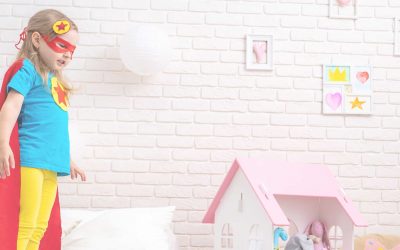The decision to separate or divorce from your partner is often a difficult one. When you have children together, it is even more complicated. Here are some key principles for helping your child through separation and divorce:
Keep grown-up problems away from the children
As much as possible, keep arguments away from the child. It is okay to disagree in front of children, but try to keep calm or talk about it later. Children can be very astute in detecting increased tension, and although they may not react at the time, it can increase their anxiety. Some children will try to peace-keep between their parents or take sides. Do not let them do this. Tell them that they are adult problems that you will work out and that it is not their job to try to solve them.
Get support for yourself, whether that be from a friend, relative, therapist or support group/online community. The more you feel supported, the less you will feel inclined to bring your child in to the problems.
Resist any temptation to use contact arrangements as a way to get back at your ex-partner.
Let them know that all feelings are okay and discuss ways it is okay to show them
Tell your child that it is okay to feel any feeling including being angry, sad, and frustrated. Discuss ways that it is okay in your home to show and deal with difficult feelings. Some examples are:
- Talk to someone (if they can’t talk to you, explore whether there is an adult family member or friend who they could talk to)
- Write (give it to someone, keep it somewhere secret, rip it up)
- Draw
- Listen to music
- Go for a walk/stomp it out
- Ask for a hug/hug a soft toy
- Cry
- Young children may just need you to hold them until they calm down
Pay attention to developmental differences in understanding of separation and divorce
The ways in which children understand and respond to their parents separating will vary depending on their age/developmental stage.
Keep to routines as much as possible
As much as possible, keep children in the routines they know. Remember to include them in conversations about any upcoming changes to routines. For younger children, it can be beneficial to have a pictorial calendar so they know what is happening when. They will benefit from frequent reminders (e.g. letting them know who is picking them up from school when you drop them off). Encourage older children to keep their own calendar of events.
Read Children’s Books about Divorce
There are many books for children about divorce. Some good examples for school age children are:
- Was it the Chocolate Pudding?
A story for preschool and elementary age children where the mother leaves and father stays in the home and cares for the children during the week.
- Dinosaur’s Divorce
A comic book style story about divorce.
- I Don’t Want to Talk About It
When a little girl’s parents tell her they have decided to divorce, her feelings are expressed through different animals e.g. feeling like she wants to roar like a lion. She eventually realizes that although there is a lot they do not agree on, her parents do agree that they both love her.
- When Mom and Dad Separate
A workbook for a child to complete with an adult (parent, relative, therapist etc.)
Think about what is in the children’s best interests
When negotiating and making plans for contact, think about what is in your child’s best interests. While 50:50 contact seems fair, is that arrangement going to give your child the most stability/ability to stay near established friendships, in established extra curricula activities, etc.?
For more information from a lawyer and a psychiatrist about things to consider in order to put your child’s best interests first, click here.
And don’t forget to check out the soundcloud available on the impact of divorce:
Top Tips
- Keep arguments away from the children.
- Tell children explicitly that it is not their fault.
- Tell them that both parents love them.
- Talk about appropriate ways to express feelings.
- Make plans with your ex-partner that are in your child’s best interests.










